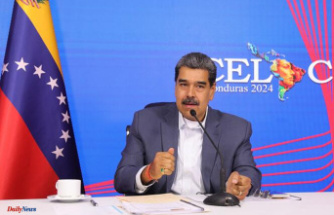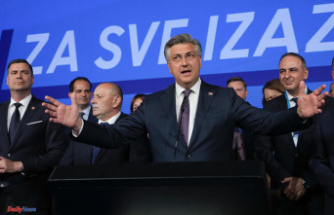Erfurt (dpa/th) - The factions in the Thuringian Parliament are still at odds as to whether and how the Prime Minister election should be changed in the constitution. "As the Green Group, we believe that Parliament has a responsibility to finally clarify the text of the constitution," said Green MP Laura Wahl on Friday after a hearing of experts on the question of a possible constitutional amendment. In her view, the experts' statements show that "there is no uniform and unambiguous interpretation of the existing constitutional norm".
The discussion about the prime minister election in the Thuringian constitution is many years old. While in most federal states the election of the head of government is considered an act without major surprises, in Thuringia there have always been disputes, uncertainties and problems.
The core question is whether a candidate who runs alone in the third ballot can also be elected with more no than yes votes. According to the state constitution, only a relative majority is required in the third ballot. Means: The candidate who gets the most votes becomes prime minister. However, if only one candidate runs, it may be that he gets more no votes than yes votes. According to some experts, this candidate would still be elected, but there are also opposing voices.
Most recently, this question was discussed intensively when Bodo Ramelow was re-elected Prime Minister in 2020. With his alliance of Left, SPD and Greens, he does not have a majority in Parliament. It was therefore conceivable that he would receive more no than yes votes in the third ballot. Ultimately, however, abstentions by the CDU parliamentary group provided clarity.
The Thuringian Left Group sees no need to re-regulate the prime minister election in the constitution. A large part of those to be heard confirmed the existing regulation. The hearing showed that "a good, practically sensible regulation that fully complies with the democratic constitutional principles is in place," explained André Blechschmidt, parliamentary manager of the Left Group.
The CDU parliamentary group, on the other hand, is pushing for more clarity. The CDU MP Christoph Zippel admitted, however, that the experts disagreed on how this could happen. "Today it is more unclear than ever before exactly what that should look like," said Zippel. He pointed out that one also had to think about what would happen if no prime minister was elected after the third ballot. Other constitutions would provide for an automatic dissolution of parliament in this case. "Such consequences would have to be considered," said Zippel. A two-thirds majority is required in Thuringia to change the constitution.












